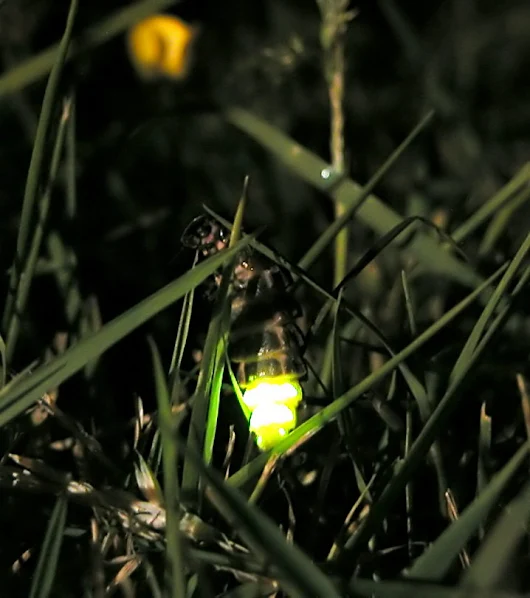WW1 glow-worms
During WWI, when an Allied soldier wanted to read a map or letter at night ... the usual method was to pluck up enough glow-worms to suit your particular lighting needs and put them into a jar or bottle. Though the strength of the glow tended to vary, even just a few of them was usually enough for a given soldier to read a letter or map without being too bright to risk attracting enemy fire. If you wanted brighter, you could pluck up several dozen choice specimens and have yourself a natural lantern.
As you may or may not know, the word “glow-worm” or “glowworm”, depending on where in the world you are, encompasses a vast array of different creatures. In this case, we’re specifically discussing Lampyris noctiluca, which is also known as the European glow-worm or the firefly, in this piece. But the term, “glow-worm” itself can refer to a number of species including mycetophilidae (fungus gnats), phengodidae (glowworm beetles) and rhagophthalmidae (which are also sometimes known as fireflies).
One thing all of these creatures have in common is that the way they produce light is amazingly efficient. For instance, the way fireflies and similar creatures produce light (See: How a Firefly Glows) is almost 100% efficient, meaning that exceptionally little energy is wasted doing anything but creating light, rather than, say, heat. For comparison’s sake, a standard incandescent light-bulb typically only converts about 5%-10% of the energy pumped into it into light, with the remaining being turned into heat. While LED light bulbs are becoming more and more energy efficient every year (presently as high as 80% more efficient than incandescents), they still haven’t managed to match that of the lowly glow-worm, lumen for lumen.
During WWI, when an Allied soldier wanted to read a map or letter at night ... the usual method was to pluck up enough glow-worms to suit your particular lighting needs and put them into a jar or bottle. Though the strength of the glow tended to vary, even just a few of them was usually enough for a given soldier to read a letter or map without being too bright to risk attracting enemy fire. If you wanted brighter, you could pluck up several dozen choice specimens and have yourself a natural lantern.
As you may or may not know, the word “glow-worm” or “glowworm”, depending on where in the world you are, encompasses a vast array of different creatures. In this case, we’re specifically discussing Lampyris noctiluca, which is also known as the European glow-worm or the firefly, in this piece. But the term, “glow-worm” itself can refer to a number of species including mycetophilidae (fungus gnats), phengodidae (glowworm beetles) and rhagophthalmidae (which are also sometimes known as fireflies).
One thing all of these creatures have in common is that the way they produce light is amazingly efficient. For instance, the way fireflies and similar creatures produce light (See: How a Firefly Glows) is almost 100% efficient, meaning that exceptionally little energy is wasted doing anything but creating light, rather than, say, heat. For comparison’s sake, a standard incandescent light-bulb typically only converts about 5%-10% of the energy pumped into it into light, with the remaining being turned into heat. While LED light bulbs are becoming more and more energy efficient every year (presently as high as 80% more efficient than incandescents), they still haven’t managed to match that of the lowly glow-worm, lumen for lumen.



No comments:
Post a Comment
Note: Only a member of this blog may post a comment.